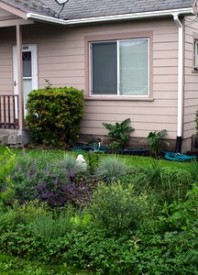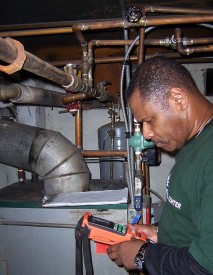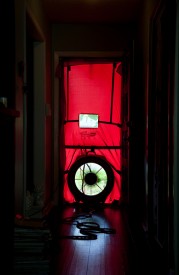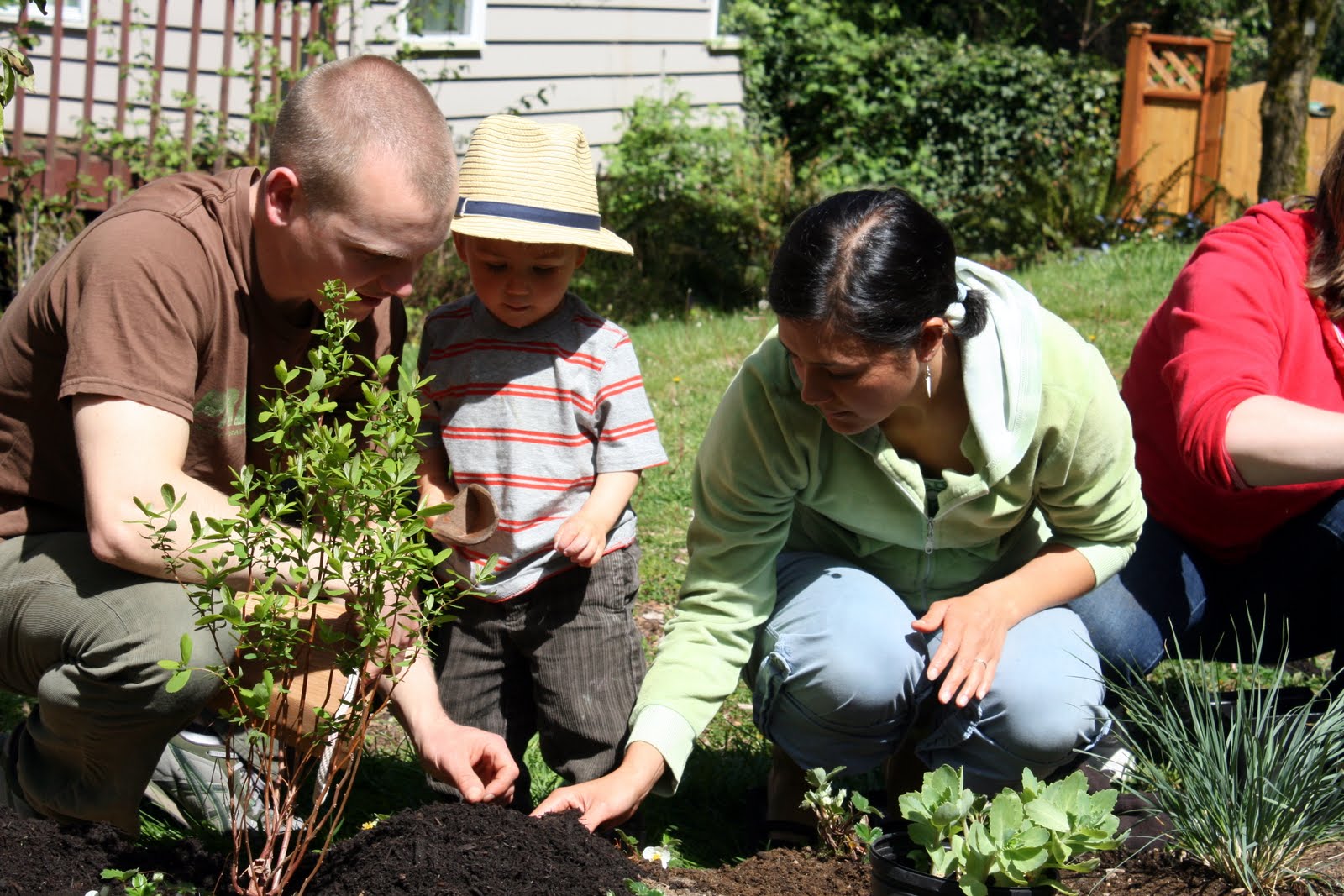To make a house environmentally sound, one needs to go green inside and out. Failing to do so is like buying your shade-grown beans and happy-cow latte in a styrofoam cup, or filling your organic hemp grocery bag with hot dogs and Cheetos.
So Kevin Ward and David Hymel have teamed up to provide Western Washington homeowners with the complete eco package.
“My picture of ecotopia is basically a holistic home makeover,” said Ward, who co-owns Revolution Green Power, a Shoreline-based business that provides home energy audits and solar installations. “It’s (about) layers of sustainability.”
David Hymel, co-owner of Rain Dog Designs, a Puget Sound-area company that designs and installs rain gardens and other green stormwater solutions, brings the outside layer.
“We want to save the planet, that’s the ultimate thing,” Hymel says with a straight face.
To get a tiny step closer to that goal, the two businesses have worked together in four Puget Sound area cities and neighborhoods in recent years, conducting evaluations of home energy use and building rain gardens that can soak up and clean the surges of filthy stormwater that gush from roofs and driveways.
They’ve targeted their projects to clusters of homes within a neighborhood. The centralized approach cuts costs, they said, particularly for the rain gardens. By moving heavy machinery that’s expensive to transport just once and then using it at multiples sites, the cost for the gardens can shrink 30 percent.
The clusters also help build interest and momentum when multiple homes are involved. Neighbors talk to each other and recruit new participants. In one case, a particularly inspired resident in Puyallup voluntarily went door to door for blocks surrounding her home to let folks know about the energy audits.
“The idea is to generate interest from the bottom up,” said Hymel, who owns Rain Dog Designs with Marilyn Jacobs. If you can get people inspired, “they’ll sell the program for you.”
Sustainable Neighborhoods

The idea for the rain garden-energy audit partnership came from Hymel. After years of holding rain garden workshops he found that interest was dropping off. The effort needed a shot of fertilizer to keep it growing.
“We want to keep the programs fresh,” he said, “so you have to keep pushing the envelope and finding new ways to attract people.”
Hymel reasoned that folks who are open to the idea of helping the environment by installing rain gardens might also be game for saving energy and money by making their homes more efficient.
“It all came together as a test,” he said, “adding the different services.”
Hymel and Ward are calling the effort “Sustainable Neighborhoods” and they’re excited about what they can accomplish by the inside-out approach.
“We’re super proud to be affiliated with it,” said Ward, who co-owns Revolution Green Power with Gordon Smith. “People get it. And when the community cheers us, you can see the CFL light bulb go off in their head.”
Since 2009, the Sustainable Neighborhoods partners have done green makeovers in two Puyallup neighborhoods, Burien, and the North Delridge neighborhood of West Seattle. In all, they’ve helped install 43 rain gardens at homes, an apartment complex, and an elementary school and 24 homes have received energy audits and high-efficiency light bulbs.
Investing for a Green Pay Off

Part of the effort’s success is due to the fact that multiple organizations and agencies have been involved with the projects, and a lot of the work was being done at limited expense to the homeowners.
The cost of the energy audits was covered entirely or in large part by Puget Sound Energy for the Puyallup residences and Seattle City Light for the homes in Seattle and Burien.
Money for the rain gardens was provided by the state Department of Ecology, the Greater Tacoma Community Foundation, Pierce Conservation District,The Russell Family Foundation, King Conservation District, the Boeing Co., and the National Fish and Wildlife Foundation’s Community Salmon Fund. The nonprofit Stewardship Partners administered some of the grant money used for the projects as part of its 12,000 Rain Gardens initiative. In-kind donations came from the city of Puyallup, Waste Connections Inc., and Lowe’s.
Hymel said they’re trying to get support for new projects in Seattle and Eatonville.
It’s made sense for the utilities and local governments to support these projects because if done right, they can save money for them in the long run.

On the energy side, it’s almost always cheaper to in effect generate more power through conservation efforts. Put another way, it’s less expensive for Seattle City Light to help its customers install fluorescent bulbs and insulate their attics than it is for them to build new wind turbines to meet increasing energy demands.
Similarly, water utilities are finding that it’s less expensive in many locations to help landowners capture and treat their stormwater runoff on their own property with rain gardens, cisterns, green roofs, and by conserving native plants, than it is to build more pipes and treatment facilities to handle fouled rainwater in a centralized location.
It all adds up to a smaller footprint in terms of pollution and water and energy use.
Says Ward: “People really have an opportunity to create a net-zero impact.”

